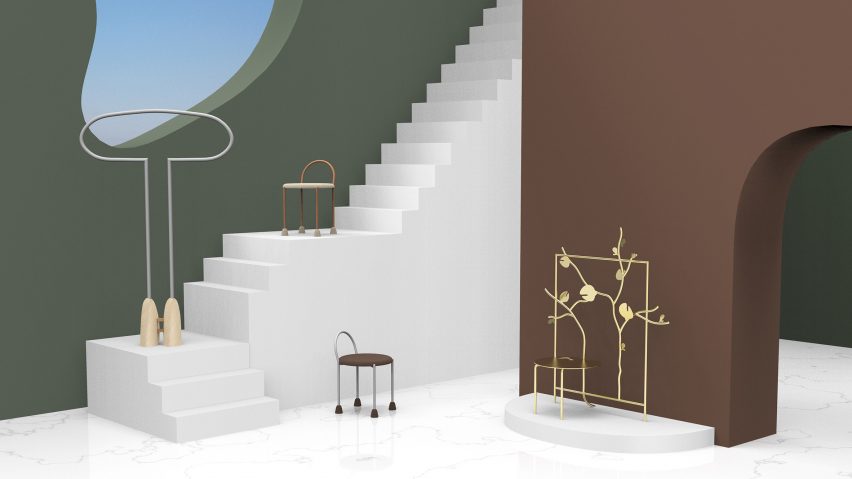
RISD students incorporate found objects and craft into "non-traditional" graduate collection
A fluorescent cabinet and an ottoman that homages Finding Nemo are featured in the final collection by graduate furniture design students from the Rhode Island School of Design (RISD), presented here as part of VDF x Sight Unseen.
Due to the coronavirus pandemic, access to in-person lessons, studios and workshops was limited for RISD students for most of their final term – just like it was for the School of the Art Insititute of Chicago, which featured in an earlier student showcase as part of our VDF x Sight Unseen collaboration.
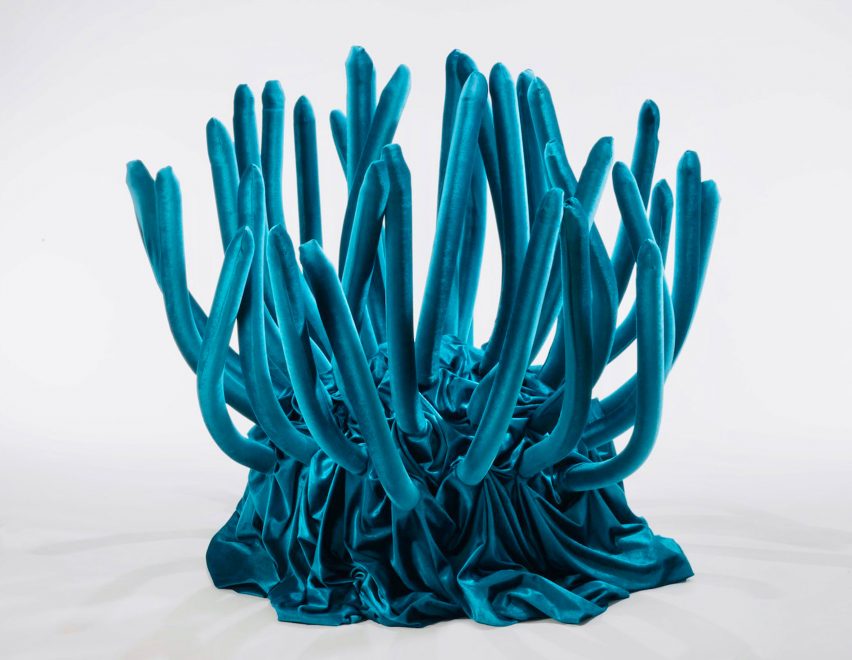
That's why this year, nine furniture design graduates are sharing individual projects rather than fully realised portfolios, brought together as one "non-traditional" collection which is on show as part of the Offsite: Online virtual exhibition by New York design magazine Sight Unseen.
Among them, three students chose to work with reclaimed materials.
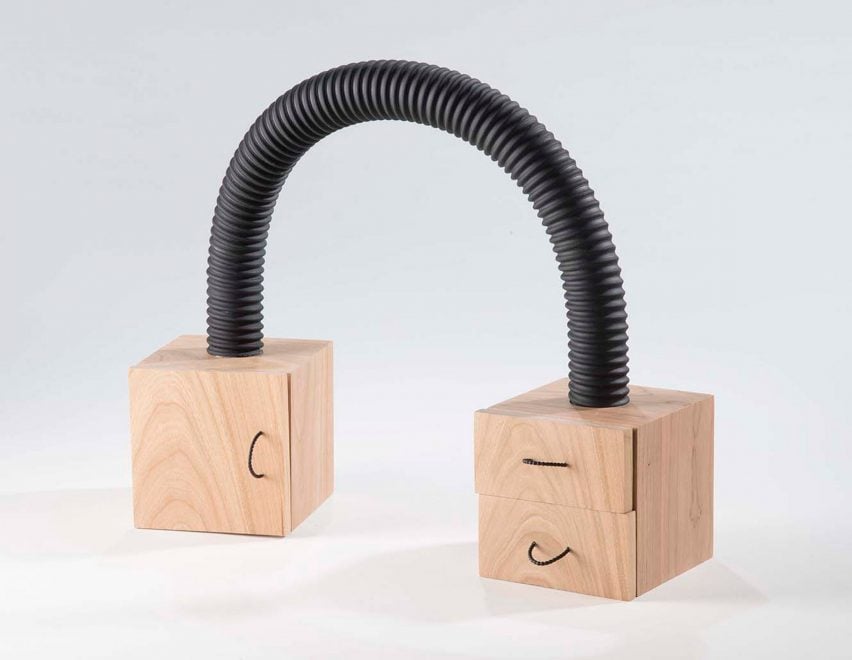
Joy Zhuo used a yoga ball and pipe insulation to create her Anemone Ottoman, which lets out an audible squeak when feet are rested upon it. This piece belongs to a three-part furniture series, which draws on imagery from the Pixar movie Finding Nemo.
Two wooden cabinets are connected by a vacuum hose in Emma Fague's Dumbbell Purse Cabinet, to create a piece that is both sculptural and functional. The student, who creates assemblages from found objects, also fashioned a towering shelf from a series of paint rollers and a blob-like chair from collected sand which she cast in resin.
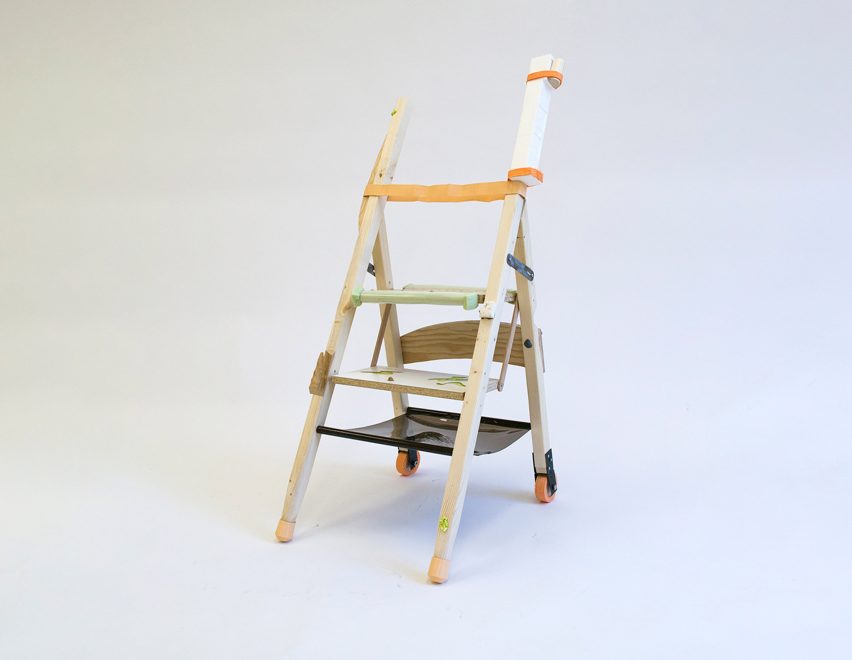
Winslow Funaki uses scraps, cast-offs and leftovers to create her "in-between objects", which defy easy categorisation. Her Untitled (Shelf) resembles both a storage unit and a step ladder, collaged together from wood, upholstery foam, stones and epoxy putty.
Another cohort of students focused on utilising traditional production techniques within their pieces.
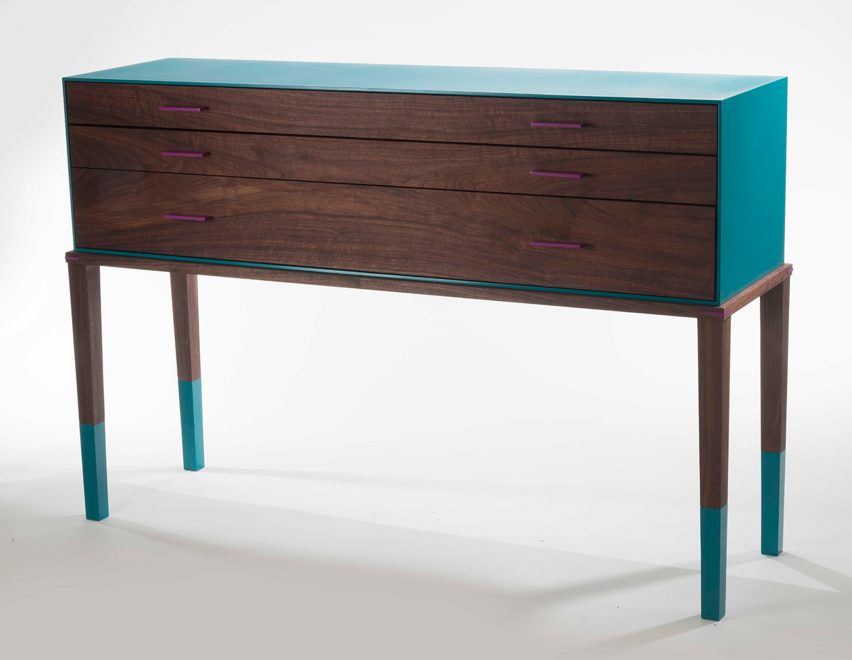
Erik DeGiorgi used his classic carpentry skills to create the Concordic Sideboard, but contrasted the dark, walnut wood with powder-coated aluminium inlays in purple and bright turquoise.
Similarly, the clean, minimalist woodwork of Xiangyu Wang's Armoire is enhanced trough a semi-circular cut-out at its centre, which speaks to the designer's view of the wardrobe as the beating heart of order and cleanliness within any household.
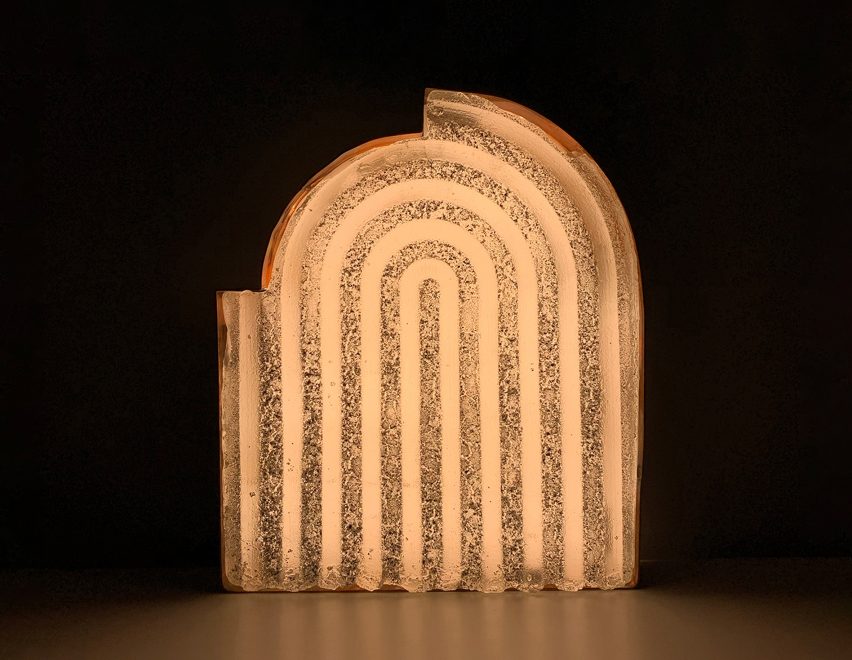
Student Ayumi Kodama used kozo fibres, which are traditionally used in Japanese and Korean paper-making, to create a waste basket, as well as casting glass within a sand mould to create a uniquely textured lamp.
A playful chair design comes courtesy of Zihe Gong, who offset a steel stool with an oversized, almost frame-like backrest intertwined with branches and leaves fashioned from the same material.
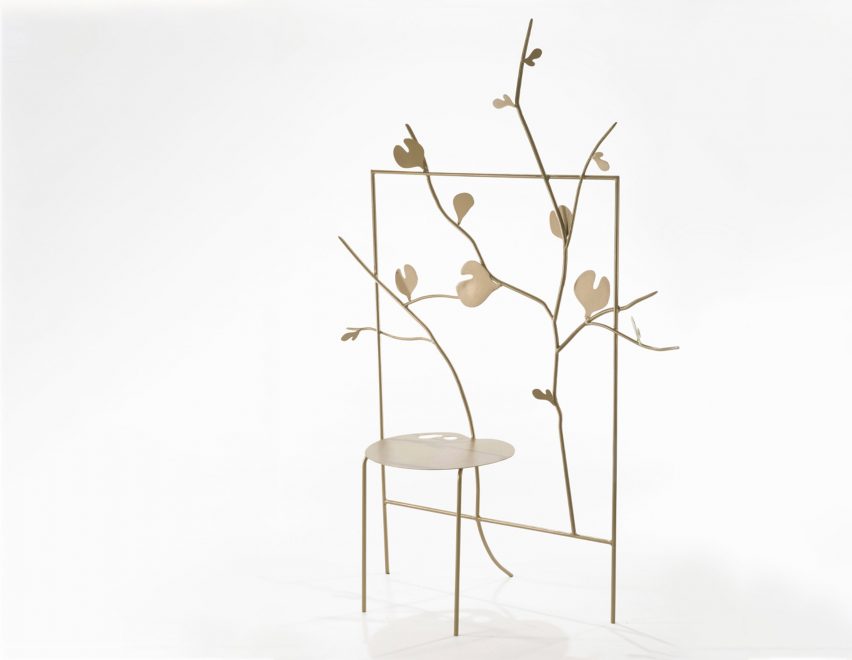
Almost diametrically opposed to this is the design for Kainan Liu's Wingback Chair, which features a thick, curved black body reminiscent of a Keith Haring line drawing.
Although its frame also consists of steel tubes, these are entirely hidden underneath its cow-hide upholstery.
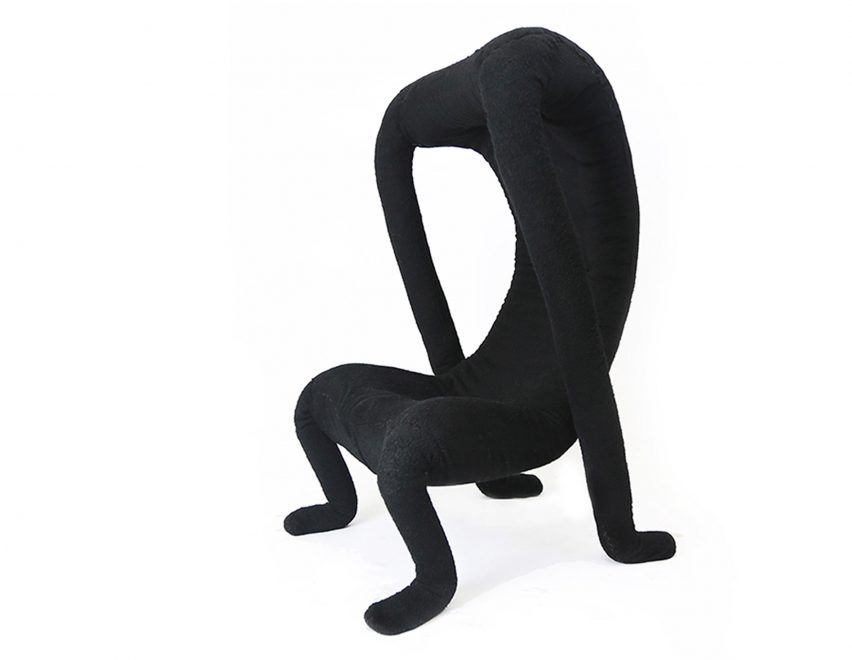
Finally, Will Choui designed a series of pieces made from acrylic or particleboard slabs, which can be assembled like a puzzle, without adhesives or hardware. This includes the aggressively fluorescent Fluo cabinet, which Choui says represents him finally taking up space and shedding of his social anxiety.
VDF x Sight Unseen
Exhibitor: Rhode Island Schoool of Design
Instagram: @risdmfa_furn
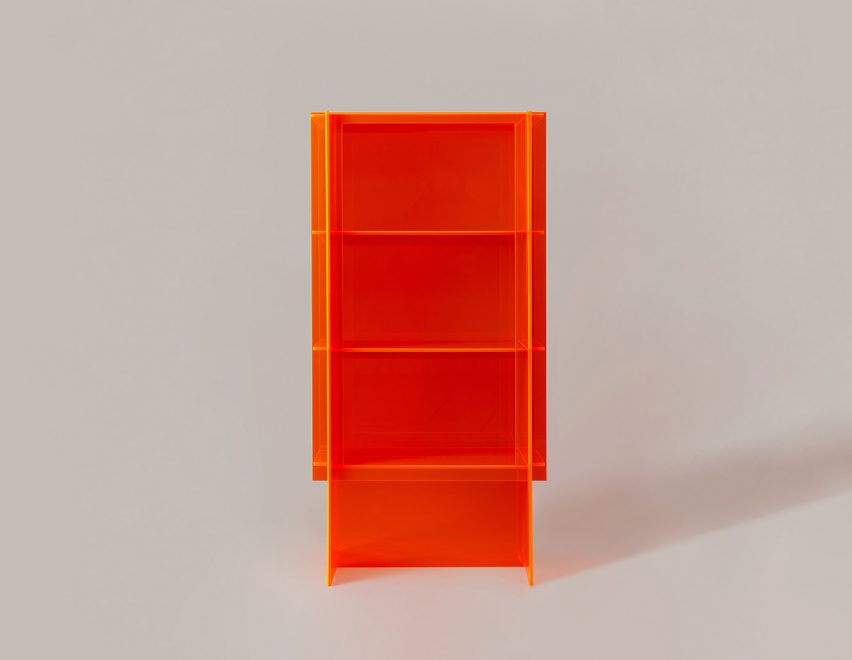
From 15 April to 30 June 2020 Dezeen is playing host to Virtual Design Festival, the world's first online design festival.
Sight Unseen is a New York-based digital magazine that covers design and visual arts, as well as curating exhibitions such as the annual Sight Unseen Offsite event.
The VDF x Sight Unseen collaboration presents projects by 51 international designers as an extension of this year's virtual Offsite Online exhibition.
